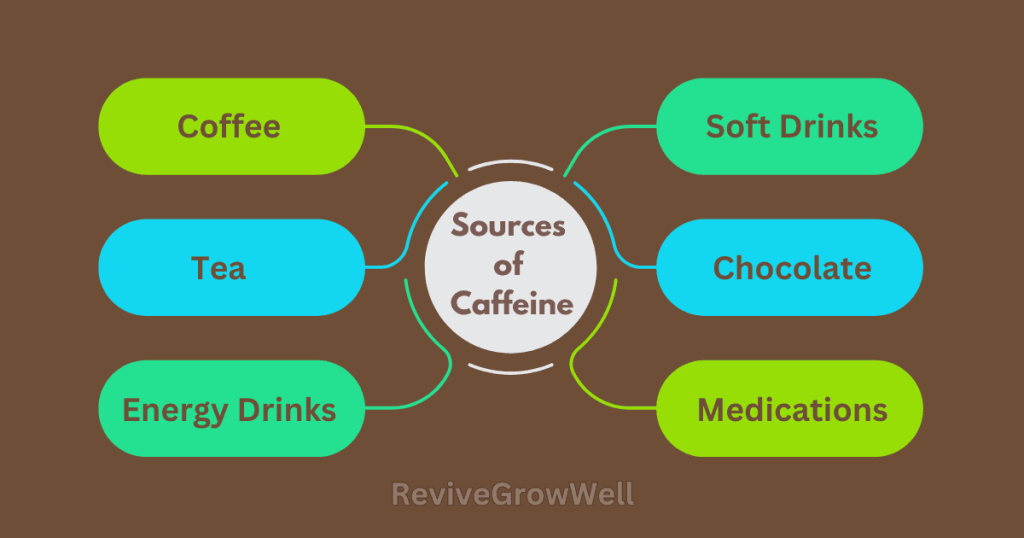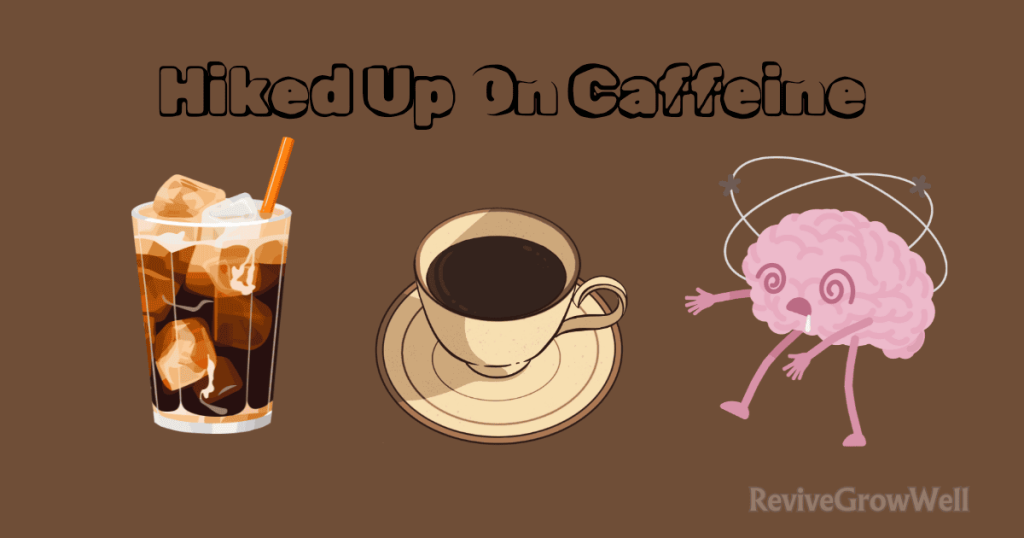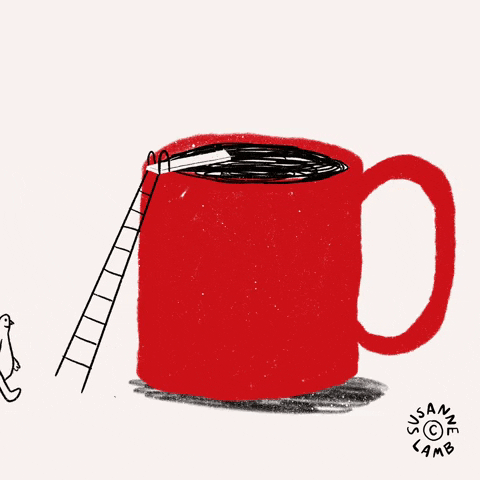In today’s fast-paced world, many people rely on caffeine to stay awake and alert. From the morning cup of coffee to the afternoon energy drink, caffeine is often the go-to solution. But what does it mean to be hiked up on caffeine? How does caffeine affect our bodies, and what are the best practices for managing its consumption?
In this comprehensive guide, we will delve into the world of caffeine, exploring its effects, benefits, and potential drawbacks while providing practical tips for responsible consumption.
What is Caffeine?
Caffeine is a natural stimulant found in various plants, including coffee beans, tea leaves, and cacao pods. It is widely consumed around the world, primarily in beverages like coffee, tea, and energy drinks. Being hiked up on caffeine describes the state of being stimulated and energized by this compound.
Caffeine works by stimulating the central nervous system, which helps to reduce fatigue and increase alertness. It’s no wonder that so many people rely on it to kickstart their day or keep them going through the afternoon slump.
Common Sources of Caffeine

Caffeine can be found in a variety of foods and drinks, with varying levels of concentration. Some of the most common sources include:
- Coffee: The most popular source of caffeine, with an average cup containing around 95 mg of caffeine. Many people feel hiked up on caffeine after their morning coffee.
- Tea: Both black and green teas contain caffeine, though in smaller amounts than coffee. A typical cup of tea has about 30-50 mg of caffeine.
- Energy Drinks: These beverages can contain anywhere from 70 to 200 mg of caffeine per serving, easily getting you high on caffeine.
- Soft Drinks: Popular sodas like cola contain caffeine, usually around 30-40 mg per can.
- Chocolate: Dark chocolate has a higher caffeine content than milk chocolate, with about 20 mg of caffeine per ounce.
- Medications: Some over-the-counter pain relievers and cold medications contain caffeine.
Effects of Caffeine on Health
Positive Effects
Being hiked up on caffeine has several benefits that make it a popular choice for boosting energy and focus. Some of the positive effects include:
- Increased Alertness: Caffeine helps to enhance focus and concentration by blocking adenosine, a neurotransmitter that promotes sleep.
- Improved Physical Performance: Caffeine can increase adrenaline levels, which helps improve physical performance, making it a common ingredient in pre-workout supplements.
- Enhanced Cognitive Function: Studies have shown that caffeine can improve memory, reaction time, and overall cognitive function.
- Mood Elevation: Caffeine can stimulate the release of dopamine and serotonin, neurotransmitters that enhance mood and provide a feeling of well-being.
Negative Effects
While being hiked up on caffeine can provide numerous benefits, excessive consumption can lead to negative side effects. Some of the potential drawbacks include:
Jitteriness and Anxiety: High doses of caffeine can cause nervousness, restlessness, and anxiety.
Insomnia: Consuming caffeine late in the day can interfere with sleep patterns and lead to insomnia.
Digestive Issues: Caffeine can increase stomach acid production, leading to digestive discomfort or acid reflux in some individuals.
Dependence and Withdrawal: Regular consumption of caffeine can lead to dependence, and sudden cessation can cause withdrawal symptoms like headaches, fatigue, and irritability.
Increased Heart Rate and Blood Pressure: Caffeine can cause a temporary increase in heart rate and blood pressure, which may be problematic for individuals with cardiovascular issues.
Managing Caffeine Consumption

Given the potential for both positive and negative effects, it is important to manage caffeine consumption carefully. Here are some tips for responsible caffeine use:
Recommended Daily Intake
The general guideline for caffeine consumption is to limit intake to no more than 400 mg per day for most adults. This is roughly equivalent to four 8-ounce cups of coffee.
However, individual tolerance can vary, so it’s important to pay attention to how your body responds to caffeine and adjust accordingly.
Recognizing Signs of Overconsumption
It’s crucial to be aware of the signs of excessive caffeine consumption to avoid negative side effects. Some indicators that you might be consuming too much caffeine include:
- Increased Heart Rate: A noticeable increase in heart rate or palpitations.
- Restlessness and Anxiety: Feeling unusually jittery, anxious, or restless.
- Insomnia: Difficulty falling or staying asleep, particularly if caffeine is consumed later in the day.
- Digestive Discomfort: Experiencing stomach pain, acid reflux, or other digestive issues.

Tips for Reducing Caffeine Intake
If you find that you’re consuming too much caffeine or experiencing negative side effects, here are some strategies to help reduce your intake:
- Gradual Reduction: Slowly decrease the amount of caffeine you consume each day to minimize withdrawal symptoms.
- Switch to Decaf: Opt for decaffeinated coffee or tea to enjoy the flavor without the caffeine.
- Hydrate: Drink plenty of water throughout the day to stay hydrated and reduce reliance on caffeinated beverages.
- Set a Cutoff Time: Avoid consuming caffeine after a certain time in the afternoon to prevent interference with sleep.
Alternatives to Caffeine for Energy
If you’re looking to reduce your caffeine intake or find other ways to boost your energy without being hiked up on caffeine, there are several natural alternatives that can help:
Natural Energy Boosts
- Adequate Sleep: Ensure you get 7-9 hours of quality sleep each night to maintain energy levels.
- Balanced Diet: Eat a well-rounded diet rich in whole foods, including fruits, vegetables, whole grains, and lean proteins, to provide sustained energy.
- Regular Exercise: Physical activity can naturally boost energy levels and improve overall well-being.
- Stay Hydrated: Dehydration can lead to fatigue, so make sure you’re drinking enough water throughout the day.
- Manage Stress: Practice stress-reducing techniques like meditation, yoga, or deep breathing exercises to prevent burnout and maintain energy.
Lifestyle Tips for Sustained Energy
- Take Breaks: Regular breaks during work or study sessions can help maintain focus and prevent fatigue.
- Get Sunlight: Exposure to natural light during the day can help regulate your sleep-wake cycle and boost energy.
- Stay Active: Incorporate physical activity into your daily routine, even if it’s just a short walk or stretching, to maintain energy levels.
Scientific Insights into Caffeine's Effects
How Caffeine Affects the Brain and Body
Caffeine works primarily by blocking the action of adenosine, a neurotransmitter that promotes sleep. By inhibiting adenosine, caffeine increases the release of other neurotransmitters like dopamine and norepinephrine, which enhance alertness and focus.
Additionally, caffeine stimulates the release of adrenaline, which prepares the body for physical exertion by increasing heart rate and blood flow.
The Half-Life of Caffeine
The half-life of caffeine, or the time it takes for half of the caffeine to be metabolized and eliminated from the body, varies among individuals but generally ranges from 3 to 5 hours. Factors like age, liver function, and genetics can influence caffeine metabolism.
Understanding the half-life of caffeine can help you plan your consumption to avoid being overly stimulated late in the day.
Personal Stories and Case Studies
Anecdotes of Being Hiked Up on Caffeine

Story 1: The Morning Marathon
John, a software developer, relies on his morning coffee to kickstart his day. One Monday, he had a particularly demanding schedule and consumed three cups of coffee before noon. By midday, he felt jittery and anxious, struggling to focus on his tasks.
Recognizing the signs of being overly stimulated by caffeine, John decided to switch to water and herbal tea for the rest of the day. Over time, he learned to limit his coffee intake to one cup in the morning, which helped him stay alert without feeling overwhelmed by caffeine.
Story 2: The Night Owl’s Dilemma
Emily, a college student, often found herself pulling all-nighters to study for exams. She relied heavily on energy drinks to stay awake, consuming up to three cans in a single night. While the caffeine kept her awake, it also left her feeling restless and unable to sleep even after her exams were over.
Realizing the impact on her sleep and overall well-being, Emily started incorporating healthier study habits, like taking regular breaks and getting more sleep, which improved her focus and reduced her reliance on caffeine.
Conclusion
Understanding the effects of caffeine and managing its consumption responsibly are crucial steps toward harnessing its benefits while mitigating potential drawbacks. Whether you’re starting your day with a cup of coffee, enjoying a refreshing tea break, or relying on an energy drink to power through a busy afternoon, being mindful of your caffeine intake can significantly impact your overall well-being.
Caffeine, as a natural stimulant, enhances alertness, improves cognitive function, and can even elevate mood. However, excessive consumption can lead to jitteriness, insomnia, digestive issues, and dependence. By adhering to the recommended daily limit of 400 mg for most adults and monitoring individual tolerance, you can optimize the benefits of being hiked up on caffeine without experiencing its negative effects.
Furthermore, exploring natural alternatives such as adequate sleep, a balanced diet, regular exercise, and stress management techniques provides sustainable ways to boost energy levels without solely relying on caffeine. These practices not only support overall health but also reduce the need to constantly feel hiked up on caffeine.
Ultimately, whether you’re seeking to maximize productivity, enhance physical performance, or simply stay alert, integrating moderation and mindfulness into your caffeine consumption habits ensures a balanced approach to maintaining energy and well-being throughout the day.
By adopting these strategies and understanding the nuanced effects of caffeine on your body, you can make informed choices that support a healthy lifestyle and long-term vitality.
FAQs About Hiked Up On Caffeine
The recommended daily limit for most adults is 400 mg of caffeine, roughly equivalent to four 8-ounce cups of coffee. However, individual tolerance can vary, so it’s important to pay attention to how your body responds to caffeine.
While caffeine has a mild diuretic effect, which can increase urine production, moderate caffeine consumption does not typically cause dehydration. It’s still important to drink plenty of water throughout the day to stay hydrated.
The half-life of caffeine is generally 3 to 5 hours, but it can vary based on factors like age, liver function, and genetics. This means it can take several hours for the effects of caffeine to wear off completely, so plan your intake accordingly.
For most adults, moderate daily caffeine consumption is considered safe. However, it’s important to stay within the recommended limit of 400 mg per day and be mindful of any negative side effects.
Natural alternatives to caffeine for boosting energy include getting adequate sleep, eating a balanced diet, staying hydrated, engaging in regular physical activity, and managing stress through techniques like meditation or yoga.
Caffeine can temporarily boost metabolism and increase fat burning, which may aid in weight loss. However, it should not be relied upon as a primary weight loss strategy, and maintaining a healthy diet and exercise routine is essential.
If you experience negative side effects from caffeine, try reducing your intake gradually to minimize withdrawal symptoms. Consider switching to decaffeinated beverages and incorporating natural energy-boosting habits into your routine.
Individuals with certain health conditions, such as heart arrhythmias, high blood pressure, or anxiety disorders, should consult with a healthcare provider before consuming caffeine. Pregnant women are also advised to limit caffeine intake.























2 thoughts on “Hiked Up on Caffeine: Understanding Its Effects and Managing Consumption”
Pretty section of content. I just stumbled upon your weblog and in accession capital to assert that I get actually enjoyed account your blog posts. Any way I’ll be subscribing to your feeds and even I achievement you access consistently quickly.